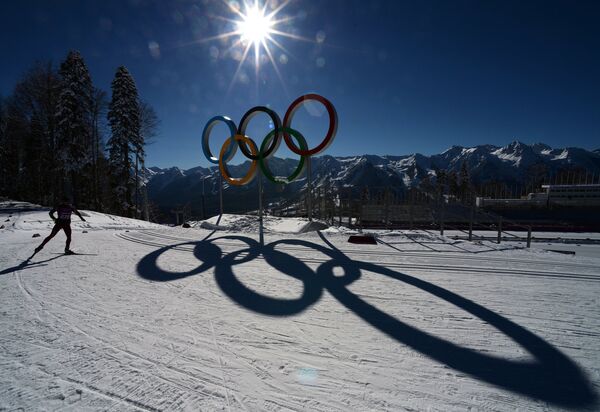MOSCOW, January 31 (R-Sport, James Ellingworth) – Could Russia be an also-ran at its own Olympics?
That’s the question troubling the Kremlin as Russia drastically scales back its predictions of sporting glory at the $51 billion extravaganza in Sochi.
Next month marks 20 years since Russia last topped the Olympic medal table in Lillehammer, a final flowering by the old Soviet-era sports system while the country was in the chaotic transition to a market economy.
Back then, Russia had little money but plenty of medals, but now the danger of the opposite could be true of Sochi 2014.
Competing in palatial sport facilities that would have been unimaginable in the Russia of 20 years ago, some of the host nation’s athletes may dream of Lillehammer-style glory. But the stark truth is that many will simply be keen to avoid failure on the scale of Vancouver 2010, when Russia finished 11th in the medal table, its worst-ever result.
The aftermath of that flop saw Vladimir Putin – then prime minister – demand that Russia must come first in Sochi, his pet project, but since then officials have been subtly redefining what “success” would mean.
The Sports Ministry set a top-three target last year, but its head Vitaly Mutko has backed down since. “Any result that the team displays” is deserving of support, he said last week.
Russian Olympic Committee chief Alexander Zhukov once predicted that Russia could “take first place” in Sochi but now has also set the bar low. “Performing worse than in Vancouver is impossible” was his barely reassuring line last month.
There is little question that Russia has improved since that 2010 nadir, branching out into new sports and hiring foreign coaches at great expense, but the strides that have been made appear shorter than expected.
So who could save Russia’s blushes?
Russia’s flagship medal contender is its men’s hockey team, bidding to win the gold medal for the first time since the Soviet “Big Red Machine” triumphed in Calgary in 1988. Boasting stars like Evgeni Malkin, Alex Ovechkin and Ilya Kovalchuk, Russia’s first two forward lines pack fearsome firepower, but concerns remain over the host nation’s strength in depth against likely gold medal rivals, chief among them Canada.
On the other side of the Olympic Park, figure skating legend Evgeni Plushenko will bid for a fourth Olympic medal after conquering injuries and younger opponents to book his place in Sochi. The battle over Russia’s sole men’s competition entry went down to the wire, with the 31-year-old winning through in a test skate for officials after the up-and-coming Maxim Kovtun flopped at the European championships.
In the pairs, Tatiana Volosozhar and Maxim Trankov have been breaking world records for fun over the last two years, but have stumbled through recent competitions. Even so, anything less than a gold medal would be a major disappointment. Fifteen-year-old Julia Lipnitskaia and ice dancers Ekaterina Bobrova and Dmitri Soloviev could also snatch bronzes.
Speedskating could be an unusual goldmine for the host nation, with Ivan Skobrev and Denis Yuskov both potential champions. By far the most noteworthy member of the Russian team is short-track star Viktor Ahn, the ex-South Korean triple Olympic champion whose adopted Russian first name is, he says, a sign of his dedication to coming first in Sochi.
In the mountains, another naturalized foreigner has become a Russian pioneer in an unfamiliar sport. US-born Vic Wild is chasing snowboard gold on the same team as his Russian wife, Alena Zavarzina.
That’s not to say that Russia is out of the running in its traditional mountain sports.
Cross-country skiing and biathlon should both provide medals, although not necessarily any golds. There was an unpleasant reminder of Russian sport’s checkered past Thursday when medal contender Irina Starykh was sent home from the Russian biathlon team after failing a drug test.
Embarrassingly for the government, that news came only a week after Sports Minister Vitaly Mutko claimed there was “not a single” drug test worry for the host nation. Doping claims bring back unwelcome memories of 2006, when Russia was stripped of a biathlon silver medal after Olga Pyleva tested positive for a banned stimulant.
But despite the unprecedented weight of expectation on the Russian athletes, team spirit appears high.
“Everyone understands why we’re going to Sochi, but it’s important to feel that we are one fist, one team, that the guys are behind one another, that no one will ever sell out anyone else,” Malkin told R-Sport earlier this month.
To avoid a flop at its first Winter Olympics, Russia will need that team spirit across the board.


